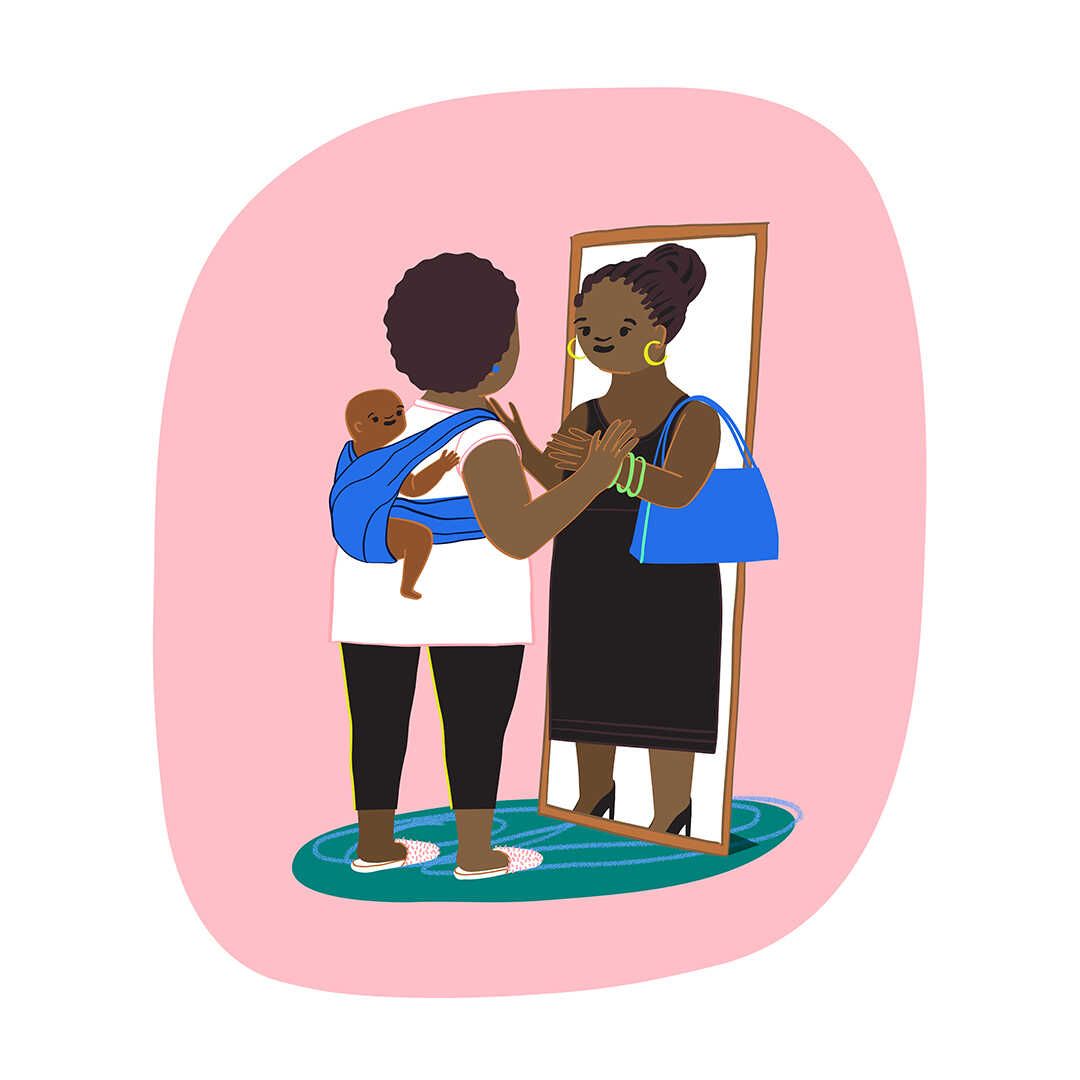From Coupledom to Motherhood: Navigating the Inner Turbulence in Postpartum
7 minute read, Written By: Momly
Motherhood journey is laid with giggles and thunder. There are happy times and there are struggling times. Embracing both of them and wending our way through the harried path is riddled with umpteen challenges, chief among them - dealing with emotions and big feelings.

Motherhood role is a new hat that a woman dons after her prolonged period of being a single entity in the coupledom. When the intricate dance of coupledom brings in a baby, it takes time to adjust to the new tune for the woman. Initially, it causes discord in her leading to wayward thoughts and feeling of blues. She falters and finds it hard to gather her bearings forget about weaving a tapestry with love, laughter and shared moments with a new baby. Before connecting with her baby, her body and mind mechanics push her down in a desperate spiral where emotions heave high and sink low. This period of rollercoaster ride in motherhood is scientifically termed as ‘Matresence’.

The push and pull: The Hormonal tug of war
A placenta releases 200 types of hormones in a pregnant women body to bring about a change in women’s body and mind. In the wake of it, several feel good hormones like oxytocin, prolactin, dopamine etc gets supplied. The postpartum phase that is after delivery of a child, these hormones namely oxytocin gets pushed to baby and the baby stimulates love and warmth in a new mom. At the same time, her own aspirations, self-image and identity pulls her away from the baby, leaving her teetering between her own individual goals versus motherly responsibilities. This push and pull causes tension and unrest giving way to depression, baby blues and anxiety.
Riding the wave of Matresence: Symptoms and Emotional Changes
Here are the common symptoms of Matresence:
- Postpartum Blues/Depression
- Momma Guilt
- Feeling of loneliness
- Feeling fatigued
- Lack of disconnect with a child
Maternal Toxins
As she tries to adjust with the new role, she is already deprived of sleep and rest. Even in this state, the society doesn’t leave her alone but she feels inundated by the myriad of maternal toxins that comes her way uninvited. Some of the maternal toxins that ripples her internal turbulence are:
- Judgement – A woman is pushed into a role of a mother without any prep work. In fact, this would be may be the only role where she is expected to fit in from day one. If she doesn’t, then she is subjected to disparaging remarks, sneers and ridicule as well as unsavory judgements. This becomes too much to handle and is well enough to push her in a motherhood guilt.
- Postnatal Body image – Matresence distorts the perception of a woman. The judgement by others on her body image added to the post-pregnancy weight makes her feel less attractive. She goes on a negative self-trash talk that piles more stress in her nervous system. She doesn’t feel happy looking at herself or being in her postnatal body. It affects her self-worth and lowers her confidence levels.
Supermom: Another way of saying “Shut up, Swallow the pain and Do it all”
Society feeds on this idea of supermom. Women buy the idea and go on piling tasks on tasks in her daily routine, try to do everything possible and that which is beyond the realm of possibility just to satisfy this frivolous idea that society has coined for her. A new mom who gets sold with this motherhood jargon, feels exhausted and overwhelmed at the end of the day. She starts to judge herself if she has missed any daily tasks and tries to exceed her physical and emotional threshold. This eventually starts to affect her relationship with herself, and the others around her, more often the child and spouse bearing the brunt. Supermom tag is a glorification of can-do-it-all idea which is conferred on a woman so that society can run away from their responsibilities of sharing the child raising and household load and let the woman run the show, no matter how displeased or challenged she is.
Keeping your environment in order
In order to keep the ebb and flow of matresence in balance, you need to focus on your internal and external environment.
- Internal environment is further divided into two namely micro nutrients which encompasses the daily vitamins and minerals and macro nutrients like fruits, physical activity, sleep, nutrition and diet and your purpose. These are the pillars of health that provides an antidote to your phase of matresence.
- External environment is the interplay of society and your family in this transition phase. Familial support and society’s minimal say or interference in your life can bring a positive frame of ideas that soothes your unpleasant feelings.
Triad of recovery
- Supplements and diet - Postnatal supplements and other necessary vitamins like vitamin D, iron can be a balm for your depressed mind, can lift the mood and improves cognitive thinking. Include foods rich in magnesium and omega 3 fatty acids.
- Lifestyle modifications – Modify your lifestyle habits like eating nutritious food, including fruits protein and fibre in your daily diet, eating on time, getting adequate sleep, consciously using the screens, moving and stretching your body to release feel good hormones so that you can heal faster.
- Caring for your nervous system – Meditation, exercising, journaling, eating well, breathing techniques and sleeping well are some of the activities that boosts the health of your nervous system, which when neglected for a longer period, can improve your stress levels, activate stress hormones and affect other parts of your body.
Rewire your brain: The power of positive affirmations and Gratitude
Make gratitude a daily habit. Write three good things and send a thank you prayer to universe. Three things can be as simple as just waking up to sunrise or warm cup of coffee. You can express gratitude at any part of the day. More so in the mornings as morning is when your subconscious is very active and receptive to your words and prayer.
If gratitude is one side of the coin of positivity, positive affirmations aka uttering positive words about yourself activates neurotransmitters and help in rewiring your brain.
Summing up:
Mental health is like physical health. If your mentally connected to the present, it becomes easier to deal with your routine. The emotional and psychological shift that happens in mothers at the time of matresence requires holistic care and integration of self-care, family support and medical guidance in order to heal faster.
Follow the above-mentioned self-care goals and nervous system care in your routine. If you are in a period of matresence and would like to talk to an expert, subscribe to Momly Plus.



